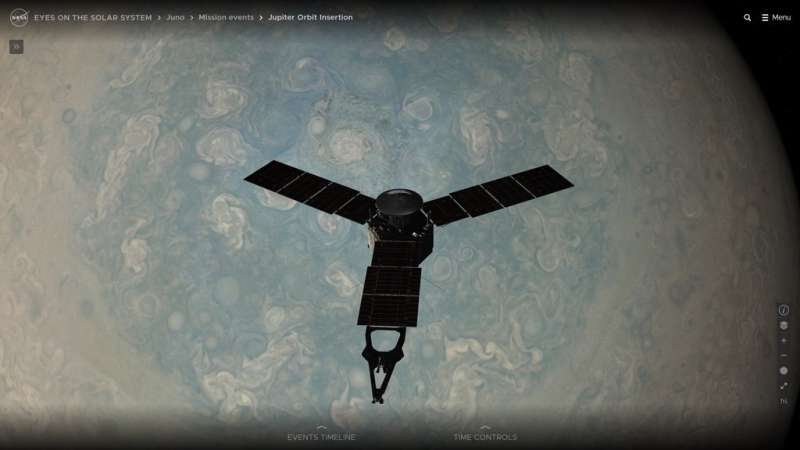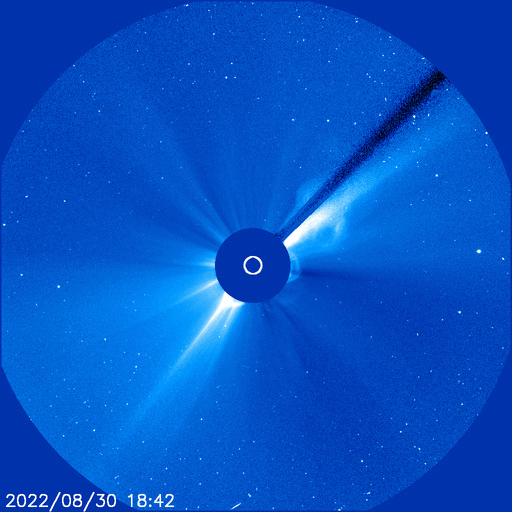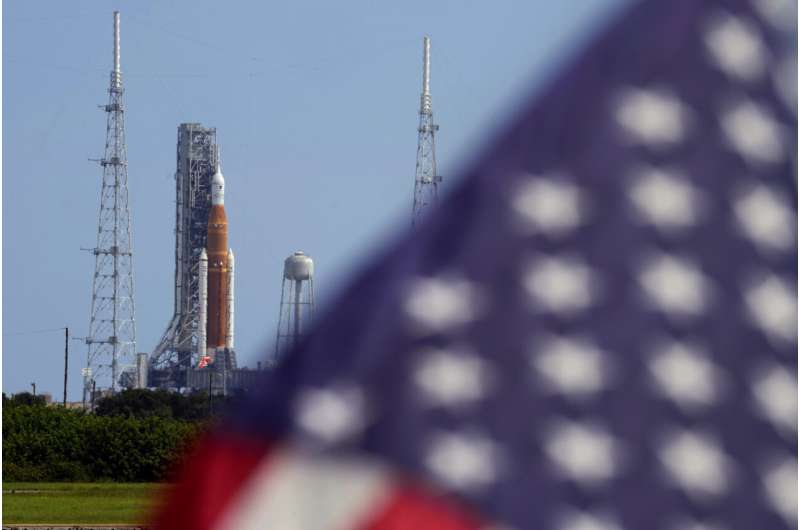
Copernical Team
While Artemis scrubs, SpaceX treats Space Coast to launches

While hundreds of thousands of people made their way to the Space Coast two weekends in a row for a shot to see the most powerful rocket to ever lift off from Earth, a couple of scrubs for NASA's Artemis I mission left them disappointed.
But for those who were making a weekend out of their efforts, there was at least one rocket that lit up the sky for those who hung around.
SpaceX has continued its frenetic pace of Falcon 9 launches including a couple of Starlink missions that took flight: one right before midnight last weekend on Aug. 27, about 32 hours before NASA called off its first Artemis I attempt; and then again Sunday night about 32 hours after NASA was aiming for its second try to send up its Space Launch System rocket with the Orion capsule to the moon.
So while NASA may eventually have to roll back the Artemis I hardware capable of 8.8 million pounds of thrust on liftoff to the Vehicle Assembly Building, SpaceX keeps sending up its 1.7 million pounds of thrust servings.
Explore the solar system with NASA's new-and-improved 3D 'eyes'

NASA has revamped its "Eyes on the Solar System" 3D visualization tool, making interplanetary travel easier and more interactive than ever. More than two years in the making, the update delivers better controls, improved navigation, and a host of new opportunities to learn about our incredible corner of the cosmos—no spacesuit required. All you need is a device with an internet connection.
Trace the course Artemis I will take to lunar orbit, or touch down with Perseverance during its harrowing entry, descent, and landing on the Red Planet. Learn the basics about dwarf planets or the finer points of gas giants, and ride alongside no fewer than 126 space missions past and present. You can even follow the paths of spacecraft and celestial bodies as far back as 1949 and as far into the future as 2049.
Scientists apply boron to tungsten components in fusion facilities
 What is the connection between boron, an element in a common household cleaner, and tokamaks, ring-shaped fusion facilities that heat fuel to million-degree temperatures? Scientists at the U.S. Department of Energy's (DOE) Princeton Plasma Physics Laboratory (PPPL) have conducted research showing that a PPPL-developed powder dropper can successfully drop boron powder into high-temperature plasma
What is the connection between boron, an element in a common household cleaner, and tokamaks, ring-shaped fusion facilities that heat fuel to million-degree temperatures? Scientists at the U.S. Department of Energy's (DOE) Princeton Plasma Physics Laboratory (PPPL) have conducted research showing that a PPPL-developed powder dropper can successfully drop boron powder into high-temperature plasma Coronal mass ejection hits Solar Orbiter before Venus flyby

Rocket to carry Mengtian space lab module arrives at launch site
 A Long March-5B Y4 rocket, tasked with sending China's space station lab module Mengtian into orbit, has been transported to the Wenchang Spacecraft Launch Site in the southern province of Hainan, the China Manned Space Agency said Saturday.
The rocket will undergo final assembly and testing together with the Mengtian lab module, which arrived earlier.
Preparations for the launch mis
A Long March-5B Y4 rocket, tasked with sending China's space station lab module Mengtian into orbit, has been transported to the Wenchang Spacecraft Launch Site in the southern province of Hainan, the China Manned Space Agency said Saturday.
The rocket will undergo final assembly and testing together with the Mengtian lab module, which arrived earlier.
Preparations for the launch mis NASA awards LISA mission laser instrument contract
 NASA has selected Ball Aerospace and Technology Corp. of Boulder, Colorado, to provide the Laser Prestabilizaton System (LPS) for the Laser Interferometer Space Antenna (LISA) laser assembly.
The total value of the cost-plus-fixed-fee contract is $11,906,675, and the period of performance is from Sept. 1, 2022, through April 1, 2025. The work will be performed at the contractor's facility
NASA has selected Ball Aerospace and Technology Corp. of Boulder, Colorado, to provide the Laser Prestabilizaton System (LPS) for the Laser Interferometer Space Antenna (LISA) laser assembly.
The total value of the cost-plus-fixed-fee contract is $11,906,675, and the period of performance is from Sept. 1, 2022, through April 1, 2025. The work will be performed at the contractor's facility Everything is Dust in the Wind
 Well, not quite. But for scientists like me, who study atmospheric and aeolian (wind-driven) processes, wind-blown dust is extremely important to understand on Mars. Because the Martian atmosphere is so thin, adding even a small amount of dust greatly increases the amount of sunlight absorbed, which greatly affects temperature, which in turn affects the entire atmospheric circulation.
Part
Well, not quite. But for scientists like me, who study atmospheric and aeolian (wind-driven) processes, wind-blown dust is extremely important to understand on Mars. Because the Martian atmosphere is so thin, adding even a small amount of dust greatly increases the amount of sunlight absorbed, which greatly affects temperature, which in turn affects the entire atmospheric circulation.
Part Duo undertake 7-hour spacewalk
 Chinese astronauts on the Shenzhou XIV mission have carried out their first spacewalk, also known as an extravehicular activity, which finished early on Friday morning, according to the China Manned Space Agency.
Mission commander Senior Colonel Chen Dong opened an extravehicular activity hatch on the Tiangong space station at 6:26 pm on Thursday Beijing time and then floated out of the st
Chinese astronauts on the Shenzhou XIV mission have carried out their first spacewalk, also known as an extravehicular activity, which finished early on Friday morning, according to the China Manned Space Agency.
Mission commander Senior Colonel Chen Dong opened an extravehicular activity hatch on the Tiangong space station at 6:26 pm on Thursday Beijing time and then floated out of the st Training astronauts to be scientists on the Moon

Astronauts with their sights on the Moon are receiving world-class geology training during the fifth edition of ESA’s Pangaea campaign. From choosing landing sites for a future Artemis mission, to designing science operations for the lunar surface, the course challenges space explorers to become field scientists.
Leak ruins NASA moon rocket launch bid; next try weeks away (Update)

NASA's new moon rocket sprang another dangerous fuel leak Saturday, forcing launch controllers to call off their second attempt to send a crew capsule into lunar orbit with test dummies.

